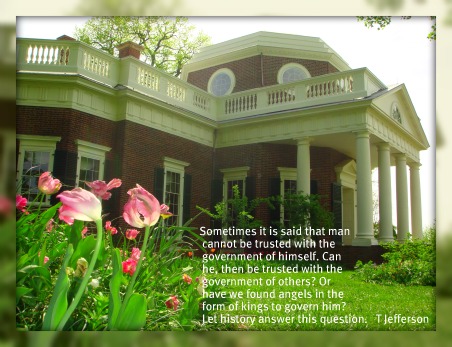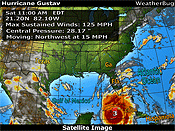To Help You find what you are researching--remember the year and look for it as you scroll...
(Picture is of the First Prayer in Congress that lasted three hours and George Washington stayed on his knees.)
This site is dedicated to let you experience and rememberthe wisdom of some of the greatest minds this nation has ever seen
Be sure to add this site to your favorites as this site is packed-full of incredible links
and visit our podsite
Link: City On A Hill Radio Show
See Also Our Video Podcasts: Salute To The Keepers of Freedom with Retired Col. Danny McKnight on the story of Black Hawk Down in Somalia
What good is it for a man to gain the whole world, and yet lose or forfeit his very self? If anyone is ashamed of me and my words, the Son of Man will be ashamed of him when he comes in his glory and in the glory of the Father and of the holy angels. Luke 9:25-26
Fifteenth Century Sources of Influence on the Founding FathersThe Gutenberg Bible
http://www.bl.uk/treasures/gutenberg/homepage.html
http://www.fordham.edu/halsall/source/columbus1.html
Christopher Columbus, (1492). This document begins with Columbus' statement that the reason why Isabella sponsored his voyage was for the sake of going to India to convert
Khan to Roman Catholicism.
Epistola De Insulis Nuper Inventis, http://www.usm.maine.edu/%7Emaps/columbus/translation.html
Christopher Columbus (1493)
Letter to the King and Queen of Spain, Christopher Columbus (1494) http://www.ku.edu/carrie/docs/texts/columlet.html
Prince Henry VII's Commission to John Cabot (1497) Cabot was the first Englishman to discover New England. http://www.yale.edu/lawweb/avalon/cabot01.htm
Sixteenth Century Influence The Prince, Machiavelli (1513) Practical advice on governance and statecraft, with thoughts on the kinds of problems any government must be able to solve to endure. http://www.constitution.org/mac/prince00.htm
Works of Martin Luther, The father of the Protestant Reformation, his principles were a major part of the American colonists' worldview. http://www.iclnet.org/pub/resources/text/wittenberg/wittenberg-luther.html
Writings of Martin Luther http://www.godrules.net/library/luther/luther.htm
On Secular Authority, Luther (1523). This document started the political discussion about religious liberty which led to the American Revolution. In this document Luther sets forth the idea of "two kingdoms," one is political and the other is spiritual, and the two ought be separate. President James Madison commended this "due distinction, to which the genius and courage of Luther led the way, between what is due to Caesar and what is due to God." (Madison to F.L. Schaeffer, December 3, 1821).
The Dutch Declaration of Independence (1581); This Calvinistic document served as a model for the U.S. Declaration of Independence. In his Autobiography, Jefferson indicated that the "Dutch Revolution" gave evidence and confidence to the Second Continental Congress that the American Revolution could likewise commence and succeed. Recent scholarship has has suggested that Jefferson may have consciously drawn on this document. John Adams said that the Dutch charters had "been particularly studied, admired, and imitated in every State" in America, and he stated that "the analogy between the means by which the two republics [Holland and U.S.A.] arrived at independency... will infallibly draw them together." http://www.fordham.edu/halsall/mod/1581dutch.html
A Briefe and True Report of the New Found Land of Virginia, Thomas Hariot. http://www.nps.gov/fora/hariotreport.htm
Discourse of Western Planting, Richard Hakluyt, (1584)
The letter patents, granted by the Queen's Majesty to M. Walter Raleigh (1584) http://etext.lib.virginia.edu/etcbin/jamestown-browse?id=J1013
First Voyage to Virginia, Arthur Barlowe (1584)
The Bondage of the Will, Luther (1524). Luther claimed that this particular document was the cornerstone of the Protestant Reformation; it argues the idea of predestination and God's sovereignty, two principles which were paramount to many of the American colonists.
The Discovery of New York (1524) Verazzano http://www.usgennet.org/usa/topic/preservation/epochs/vol1/pg92.htm
Complete Works of Menno Simons, Founder of Anabaptism
Works of Henry VIII http://www.luminarium.org/renlit/tudorbib.htm
The Act of Supremacy, Henry VIII (1534). By this act, the English Reformation began, and the pope was stripped of his jurisdiction over the English Church. This allowed Lutheran principles to make their way into the English church, and led to the birth of Puritanism. http://www.britainexpress.com/History/tudor/supremacy-henry-text.htm
The English Reformation
Letters of the Six Wives of Henry VIII http://englishhistory.net/tudor/letters.html
Henry VIII's letters to Anne Boleyn http://englishhistory.net/tudor/lovelett.html
Cartier's Exploration of the St. Lawrence (1535)
Institutes of the Christian Religion,
John Calvin (1540). Calvin's magnum opus. The most celebrated American historian, George Bancroft, called Calvin "the father of America," and added: "He who will not honor the memory and respect the influence of Calvin knows but little of the origin of American liberty." To John Calvin and the Genevan theologians, President John Adams credited a great deal of the impetus for religious liberty (Adams, WORKS, VI:313). This document includes a justification for rebellion to tyrants by subordinate government officials; this particular justification was at the root of the Dutch, English, and American Revolutions.
The Complete Works of John Calvin http://www.godrules.net/library/calvin/calvin.htm
Coronado's Report to Mendoza (1540) http://www.pbs.org/weta/thewest/resources/archives/one/corona8.htm
Coronado to the King of Spain (1541) http://www.pbs.org/weta/thewest/resources/archives/one/corona9.htm
The Journey of Alvar Nuñez Cabeza De Vaca (1542) http://www.pbs.org/weta/thewest/resources/archives/one/cabeza.htm
Brief Account of the Devastation of the Indies,Bartolome de la Casas (1542)
The Death of De Soto (1542)
On the Revolutions of the Heavenly Bodies, Copernicus (1543).l
This document touched off the Scientific Revolution as it repudiated the Geocentric theory and asserted a Heliocentric theory of the solar system.
The Council of Trent (1545) The Roman Catholic responses to the Protestant Reformation.
Spiritual Exercises, Ignatius Loyola (1548). Rules for the Jesuits written by the founder of the Jesuit Order. http://www.ccel.org/i/ignatius/exercises/exercises_ToC.html
Journal of Edward VI http://englishhistory.net/tudor/ed1.html
The Magdeburg Bekenntnis or Magdeburg Confession (1550). A document written by followers of Luther stating a theological justification for resisting tyranny. http://personal.pitnet.net/primarysources/magdeburg.html
Order to Take Down Altars (1550) King Edward VI http://members.shaw.ca/reformation/1550altars.htm
A Vindication of the Doctrine that the Sacrifice of the Mass is Idolatry, John Knox (1550)
Treatise on Prayer, John Knox (1553) http://www.swrb.com/newslett/actualNLs/prayertr.htm
A Faithful Admonition to the Professors of God's Truth in England, John Knox (1554) http://www.swrb.com/newslett/actualNLs/faithadm.htm
The Genevan Book of Order (1556) The Form of Prayers and Ministration of the Sacraments, etc. Used in the English Congregation at Geneva http://www.swrb.ab.ca/newslett/actualNLs/GBO_ch04.htm
A Short Treatise on Political Power, John Ponet, D.D. (1556) President John Adams credited this Calvinist document http://personal.pitnet.net/primarysources/adams.html
as being at the root of the theory of government adopted by the the Americans. According to Adams, Ponet's work contained "all the essential principles of liberty, which were afterward dilated on by Sidney and Locke" including the idea of a three-branched government. (Adams, Works, vol. 6, pg. 4). Published in Strassbourg in 1556, it is the first work out of the Reformation to advocate active resistance to tyrannical magistrates, after the Magdeburg Bekenntnis (the Magdeburg Confession).
How Superior Powers Ought to Be Obeyed by Their Subjects, Christopher Goodman (1558). Justifying a Christian's right to resist a tyrannical ruler. Goodman indicated that he had presented the thesis of this book to John Calvin, and Calvin endorsed it.
The First Blast of the Trumpet Against the Monstrous Regiment of Women, John Knox (1558). A vigorous critique of the tyranny of "Bloody Mary's" reign in England, and a call to resist. A large portion of the Americans who fought in the American Revolution were adherents to Knox's doctrines as set forth in this document.
The Appellation from the Sentence Pronounced by the Bishops and Clergy:, John Knox; Addressed to the Nobility and Estates of Scotland (1558) http://www.swrb.com/newslett/actualNLs/appellat.htm
Act of Supremacy, Elizabeth I (1559). After the brief and bloody reign of her sister, Mary I, who executed numerous Protestants for the cause of Roman Catholicism, this document states Elizabeth's intention to reaffirm the English Church's independence from Rome. Her beloved status among her subjects caused the first settlers of America to name their colony "Virginia" in honor of this virgin queen. http://www.gunpowder-plot.org/archives/eliz1.htm
Complete Works of Elizabeth I, Including her letters and her poems. http://www.luminarium.org/renlit/elizabib.htm
Book of Common Prayer (1559) http://justus.anglican.org/resources/bcp/1559/BCP_1559.htm
Writings and Speeches of Elizabeth I http://www.fordham.edu/halsall/mod/elizabeth1.html
Foxe's Book of Martyrs (1563). Detailing the bloody persecutions of Puritans during the reign of Mary I, this book was second only to the Bible in its popularity in the American colonies. http://www.ccel.org/f/foxe/martyrs/home.html
Supralapsarian Calvinism, Theodore Beza (1570) Laying out the principle that God willed and predestined the fall of Adam and the existence of sin and evil. This assertion became the most controversial philosophical conflict among American colonists up through the 19th century.
The Scholemaster (1570) Philosophy of Education among English people, particularly with respect to the importance of learning Latin.
The Thirty-Nine Articles of Religion (1571) The official statement of faith of the Church of England; this document formally adopts the Calvinistic doctrine of predestination and repudiates common notion of "free will." http://www.fordham.edu/halsall/mod/1571-39articles.html
Treasons Act (1571) Forbidding criticism of Queen Elizabeth. http://www.gunpowder-plot.org/archives/eliz2.htm
The St. Bartholomew's Day Massacre (1572) http://history.hanover.edu/texts/barth.htm
The Right of Magistrates Over Their Subjects, Theodore Beza (1574). Expanding upon Calvin's political resistance theory set forth in the final chapters of his Institutes, this work by Calvin's successor in Geneva, Theodore Beza, was published in response to the growing tensions between Protestant and Catholic in France, which culminated in the St. Bartholomew Day Massacre in 1572. This text suggests that it is the right of a Christian to revolt against a tyrannical King: a principle central to the American colonists' cause. http://fly.hiwaay.net/%7Epspoole/Beza1.htm
Of the Tabaco and of His Greate Vertues, Nicholas Monardes (1577) http://www.tobacco.org/History/monardes.html
The Works of Sir Walter Raleigh, Sponsor of the First Settlements in Virginia http://www.luminarium.org/renlit/ralebib.htm
De Jure Regni apud Scotos, George Buchanan (1579) Considered the most important piece of political writing in the 16th century as it articulated the doctrine of "the rule of law." http://fly.hiwaay.net/%7Epspoole/Buchan_2.HTM
Vindiciae Contra Tyrannos, or, A Vindication Against Tyrants (1579). This Calvinist document is one of the first to set forth the theory of "social contract" upon which the United States was founded. The idea was disseminated through the English Calvinists to the pen of John Locke, and eventually into the Declaration of Independence. John Adams reported the relevance of this document to the American struggle. http://www.constitution.org/vct/vindiciae.htm
Drake's Visit to California (1579) http://www.usgennet.org/usa/topic/preservation/epochs/vol1/pg156.htm
The first Voyage made to the coasts of America (1584) http://etext.lib.virginia.edu/etcbin/jamestown-browse?id=J1014
The True Pictures and Fashions of the People in that Part of America Now Called Virginia, by John White (1584 & 1588), John White's drawings and descriptions of the Indians http://etext.lib.virginia.edu/etcbin/jamestown-browse?id=J1009b
The voyage made by Sir Richard Grenville, for Sir Walter Raleigh, to Virginia (1585)
The third voyage (1586) http://etext.lib.virginia.edu/etcbin/jamestown-browse?id=J1015
Adam Winthrop's Commonplace Book (1586) Early diary of a Puritan whose family eventually settled in America. http://www.millersv.edu/%7Ewinthrop/common.html
Raleigh's First Roanoke Colony (1586) Ralph Lane; complete text http://docsouth.unc.edu/nc/lane/lane.html
The Colony of Roanoke, Ralph Lane (1586). The first English attempt at colonizing the New World http://www.nationalcenter.org/ColonyofRoanoke.html
The Fourth Voyage (1587) http://etext.lib.virginia.edu/etcbin/jamestown-browse?id=J1018
The Birth of Virginia Dare (1587) http://www.usgennet.org/usa/topic/preservation/epochs/vol2/pg35.htm
Return To Roanoake, John White (1590) Relating the surprise of the loss of the Roanoake colony and the few clues left regarding their fate. http://personal.pitnet.net/primarysources/ronoake.html
Letters of Philip II, King of Spain http://www.lib.byu.edu/%7Erdh/phil2/
An Act Against Papists (1593) Parliament's tough words against those who would attempt to depose Elizabeth for her Protestantism. http://www.gunpowder-plot.org/archives/eliz5.htm
An Act Against Puritans (1593) http://history.hanover.edu/texts/ENGref/er86.htm
Works of Richard Hooker (1593) Anglican political commentator and major influence upon John Locke. http://www.luminarium.org/renlit/hookbib.htm
Letter of James VI to the Earl of Essex, 13 April 1594 http://www.gunpowder-plot.org/archives/james52.htm
Letter of James VI to the Earl of Essex, 6 October 1595 http://www.gunpowder-plot.org/archives/james59.htm
Journey of Coronado (1596) http://www.pbs.org/weta/thewest/resources/archives/one/corona1.htm
A Trew Law of Free Monarchs, James I Stuart (1598). Championed the doctrine of "Divine Right of Kings." This oppressive political theory contributed to the exodus of the Puritans to America in 1630, and resistance to it was the ultimate goal of three revolutions: 1) the Puritan Revolution of the 1640s, 2) the Glorious Revolution, and 3) the American Revolution. http://personal.pitnet.net/primarysources/stuart.html
The Dutie of A King, Sir Walter Raleigh (1599) Promoting the doctrine of "Divine Right of Kings." http://personal.pitnet.net/primarysources/raleigh.html
The Geneva Bible, 1599 update of the translation made by the Puritans in Geneva 1560. http://personal.pitnet.net/primarysources/geneva.html
This was the Bible of choice in New England. These are the footnotes which provide a Calvinistic theological interpretation of the Bible










